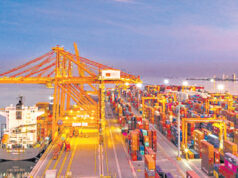Energy is one of the earmarks of modern living and convenience. Most households and businesses rely on it to run appliances and office equipment. When it comes to transportation and communication, energy is also essential for the use of electric trains, planes and various telecommunication devices. Even medical facilities at hospitals and clinics need energy for a more efficient medical practice.
The impact of energy to the advancement of human race is massive and unquestionable. It is the basis of existence, bringing the world to life. In the Philippines, in particular, December was declared as the National Energy Consciousness Month (NECM), spearheaded by the Department of Energy (DoE), to highlight the importance of energy in the daily lives of Filipinos and in the country’s economic development.
Similar to the previous celebrations, the recently held NECM 2019 was marked with various programs and activities. Anchored on the theme “Advancing Consumer Protection through Responsive and Proactive Energy Regulations,” it underscored the efforts of the “energy family” to uphold consumer welfare through increased awareness on energy matters, as well as the implementation of various programs, policies, guidelines, and rules that have been benefitting each and every Filipino.
DoE Secretary Alfonso G. Cusi assured that the entire energy family has been tirelessly working toward providing the entire archipelago secured, stable, reliable, accessible, and affordable energy services.
“Upholding the welfare of Filipino consumers is one of the core foundations of President Rodrigo R. Duterte’s administration. Time and again, the President has impressed upon us that the true spirit of public service lies in the ability of government to faithfully espouse and protect the best interests of our people. For the past three years, the energy family has been striving very hard to emulate this kind of service leadership through strategies, policies, and programs that anticipate and effectively respond to the energy needs of our countrymen,” Mr. Cusi was quoted as saying in a statement.
In line with the observance of the NECM 2019, DoE, through its Investment Promotion Office, held last Dec. 3 its final Energy Investment Forum (EIF) for the year. This annual event aims to provide local and international stakeholders with key updates on current investment opportunities and developments in the energy sector, as well as relevant energy investor experiences in project implementation.
About 300 participants from local electric cooperatives, energy generators, financial institutions, various government agencies, and local business groups attended the event.
Recognizing the need to break barriers to investments in the energy sector, Mr. Cusi said that DoE has established additional policies that would dispel fears of potential investors.
“Following the spirit of the Energy Virtual One Stop Shop law and the Energy Efficiency and Conservation Act, we issued the following: Omnibus Guidelines Governing the Award and Administration of Renewable Energy Contracts and the Registration of Renewable Energy Developers to harmonize and enhance existing guidelines and procedures governing the transparent and competitive system of registering and awarding RE projects; Qualified Third Party policy for our remote and off-grid areas; Battery Energy Storage System policy; and the IRR for the EE and C Act among the other policies released,” Mr. Cusi said.
Meanwhile, DoE, through its Energy Utilization Management Bureau, also launched the Energy Innovation Challenge last month as part of the activities for the NECM 2019. It was developed to encourage the Filipino youth, particularly the senior high and college students, to participate in the formulation of innovative solutions to existing and potential challenges within the energy industry.
“We want our students to have a say in the forging of their energy future. This Energy Innovation Challenge would give them the opportunity to contribute to the continuing development of the energy industry as early as now,” Mr. Cusi said.
Also held as part of the month-long celebration were the Energy Investment Forum; Energy Safety, Health and Environment Conference; and a Renewable Energy Expo.
The NECM, which coincides with the anniversary of DoE, is observed by the virtue of Proclamation No. 1427 signed on Dec. 11, 2007 by then President Gloria Macapagal-Arroyo.
Over the past years, DoE has been committed to its mandate of supervising all government’s plans, programs, projects, and activities relative to energy exploration, development, utilization, distribution and conservation. It is driven by its mission to improve the quality of life of Filipinos by formulating and implementing policies and programs to ensure sustainable, stable, secure, sufficient, accessible, and reasonably-priced energy.
In 2019, DoE ended the year with several milestones. These include policies and programs on energy security such as the Philippine Conventional Energy Contracting Program and the issuance of a circular covering the general framework on ancillary services. The Energy department was also able to issue an order allowing the direct remittance of financial benefits to hosts of power generation and energy resource development projects. Moreover, it also initiated activities related to the further development of renewable energy. — Mark Louis F. Ferrolino



